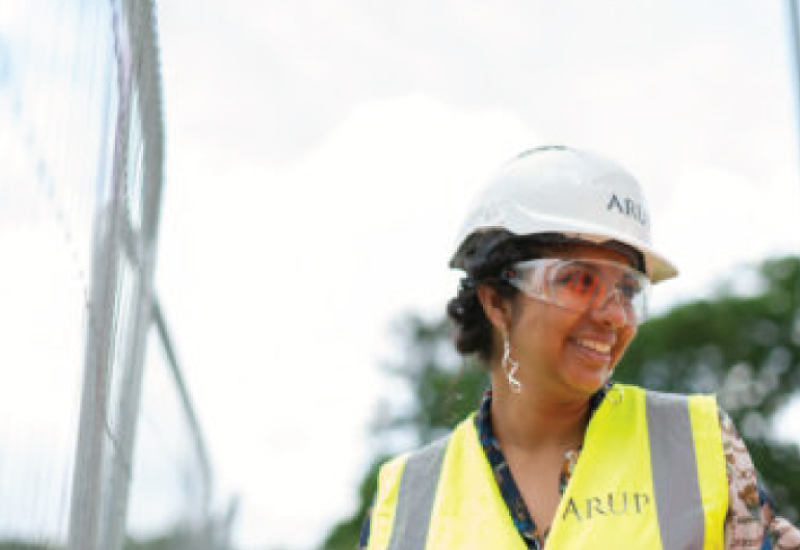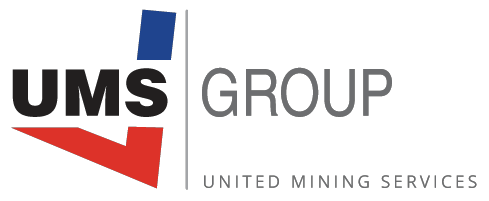
SNAPSHOT OF WOMEN IN MINING AT UMS
While it is clear that women in mining are a minority, and that long-term thinking is needed to increase accessibility and development of women in the mining sector, companies such as United Mining Services (UMS) are leading the drive towards inclusivity. In part 2 in our series, we continue with a snapshot of the women in mining at UMS. Digby Glover, CEO of the UMS Group says that diversity has been one of the Group’s long-standing values. “It’s all about people, and I’m making sure that UMS has the best, both in terms of bringing the right people in, but also in terms of looking after them once they are there.”
Snapshot of women in mining at UMS
Siphiwe Antonette Malepe recently joined UMS METS, having travelled a studious path to her current role as Junior Process Engineer. After completing a National Diploma in Engineering that included a year of in-service training at Modikwa Concentrator Plant, she decided to further her studies and completed a Bachelor of Technology in Chemical Engineering where she was given an opportunity to mentor 10 first-year Chemical Engineering students. At the time, she also published two academic articles and presented at the Planetary and Scientific Research centre. Further studies followed to obtain a Post Graduate Diploma in Project Management. Not quite done, Siphiwe expanded her career to pyrometallurgy and logistics at Samancor Ferrochrome during which time she completed her Engineer In Training Programme, before joining UMS METS where she is looking forward to learning plant commissioning.
“I chose to be an engineer because engineering gives me an opportunity to challenge myself and it gives me the space to think out of the box in the most creative and technical way,” says Siphiwe. “Engineering is the centrepiece between the world we live in and innovation. The need for engineers expands with the ever-increasing demand for innovative solutions to better the conditions of the world, as we are like the wizards of society.
“I wanted a career that will allow me the opportunity to work with people who are as driven and skilled as myself, and that’s ultimately why I wanted to become an engineer.”
Nonjabulo Zikhali is a Commercial Contracts Specialist at UMS, responsible for a wide variety of procurement and contracting duties such as drafting contracts, recommending the most suitable contract for a project, contract negotiations, and ensuring contractual, insurance and bonding requirements are met prior to contract execution.
Nonjabulo explains that while she was doing vocational work during her studies in quantity surveying, she was presented the opportunity to join a division that specialised in the construction of mineral processing plants. “My first-hand experience was when I was part of the site team helping to achieve a project of constructing a gold processing plant project in Ghana. I have not looked back since then.” She adds that she hasn’t encountered challenges in her career as a woman. “I wanted to be a professional in the engineering field and I went and did it. It was after I had started working that I realised that there were not enough women in the industry. My mentors were male so there were instances where I had to alter myself to fit in but that is a thing of the past.”
She says the best part of her job is the feeling of accomplishment at the end of a project and being part of a team that developed something valuable out in the world that creates employment for others.
As a Junior Mechanical Engineer, Genevieve van Wyk assists with the preparation of annual budgets, designs, layouts, inspections, and project installation, as well as helping to plan, organise and control projects, and additionally makes recommendations on alternative solutions to engineering problems. She got into mining when an opportunity to join UMS METS became available after she graduated.
“Two years ago, I was a graduate just starting to work and decided to join a company that was going through changes as a business. Transitioning from a student to a working woman and navigating through a company that was changing was extremely challenging. Lucky for me, I enjoy a challenge,” says Genevieve.
“Since UMS has different divisions within the company, I have learnt about the different stages of mining from developing a mine, to mining, to processing ore. Having knowledge in the different stages of mining allows me to understand what happens downstream and upstream of a particular stage which allows for good engineering design.
“Over the past year, I have been involved in the design and procurement of various equipment for a shaft sinking project in Botswana. The highlight for me on this job is seeing an engineering design come to life through manufacturing. It is difficult to explain how exciting and eye opening that is.”
Women’s importance in mining
Towards the end of last year, KBC Health & Safety (a holistic provider of Onboarding solutions in Southern Africa) hosted a ‘Women in Mining’ webinar.
“The most common challenges faced by women in mining are physical capacity, pregnancy and maternity leave, workplaces not accommodating the needs of women in terms of sanitation and ablution facilities, safety and security, and childcare facilities.
“KBC recognises that this transformation cannot be achieved unless the current issues and challenges faced by women in the South African mining industry are highlighted and corrected. To this end, we believe that hosting a free webinar provided an excellent platform for discussion and debate on this topic,” said Thurtell.
The panel discussion at the event was led by three highly influential women in the mining industry. These were Olebogeng Sentsho, CEO of Ayana Group; Fortune Naledi, MD of Dust A Side Coal and CEO and Founder of GNF1 Engineering & Construction; and Vuyokazi Nontso, Risk and Compliance Manager at Nkwe Platinum South Africa.
In a presentation entitled ‘What can we do to Attract and Retain Women in the Mining Industry?’, Naledi said: “We are still behind in acquiring the desired number of women in the industry. However, a lot has been done to make the mining industry conducive for women in terms of the environment, health and safety standards, and equipment and tools, which no longer requires hard manual labour.”
Nontso commented that, post-1994, doors have opened for women in the mining industry. “Although we have welcomed that opportunity, the journey over the past 27 years has not been without challenges,” she highlighted in her presentation entitled ‘Challenges Facing Women in the Mining Industry in South Africa’.
“Some have been emotional, psychological and physical challenges. Some are quite nebulous and hard to understand for people not in that situation, which results in the stereotype that women do not belong in that environment,” added Nontso.
However, Sentsho pointed out that women in mining have twice as many qualifications as their male counterparts, with 84% of women in mining more qualified than their bosses. “Women often sacrifice experience for education,” she noted.
In her presentation entitled ‘Women in Power’, Sentsho advised: “Accept credit for all the work you do. If you were the boss, would you promote someone who insists her success is purely happenstance? Refusing to accept responsibility for the positive role you played will not inspire confidence in your ability and will erode your self-confidence. You need to feel appreciated in order to thrive.”
The webinar not only demonstrated KBC’s support of the important role that women continue to play in mining but highlighted the need for increased upskilling and awareness of diversity and inclusivity in the industry.
KBC strives to set a single standard of induction training across the mining industry, which reduces duplication of training as services providers have reciprocity across multiple sites. This is based on the five key pillars of Training, Systems, Consulting, Community and Risk Solutions. Therefore, KBC is well-positioned to integrate with the mining industry’s value chains to ensure a streamlined and cost-efficient Onboarding solution for all.
